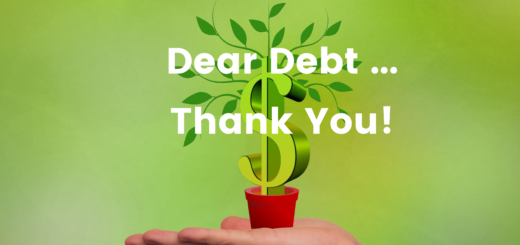Becoming more financially concious
I recently met with a couple who had to rely on the Bankruptcy system to get their feet back on the ground. We chatted about the cause of their financial difficulties and what they learned from the process. And I asked them what advice they would offer to the generation after them. What I heard was a familiar story. Not a story about how they overspent, took too many trips, bought too many things (although that is a story I hear sometimes), but a story about how life dealt them a hand, they decided which cards to keep and in retrospect, wish they had made a different choice. Ahhhh, life lessons! What would we do without them? My philosophy: If we didn’t make any mistakes our lives would be oh-so-boring. So, get ‘er done! Make as many as you can early on in life so you can make less in your later years. 🙂
So, what advice did they have based on their experience…
First, they came to the conclusion that one does not need a new vehicle. And in fact, the sheer decision to buy a new vehicle when you have just started a family and have a baby to consider, is not necessarily the best choice. In their case, they would have borrowed money from a family member and looked at purchasing an older vehicle, at least for a few years until they got settled with their family and their careers. Their advice: Consider all options before signing on that dotted line.
I can feel many readers jumping all over this…but then they would have car repairs…and a less reliable vehicle…and…and…and…!
All logical responses. In life, many decisions made can be compared to a game of roulette, you really don’t know what the outcome will be. You may win and you may lose. But some decisions set you up for disaster. Sort of like going to a casino with untapped credit cards and no money in your account. Or taking out a car loan when you land your first good job, prior to being there for any length of time.
In this couple’s case they had to finance their vehicle at a high interest rate because of prior credit challenges, and it left them strapped. So strapped, that paying for maintenance and repairs on the vehicle became challenging. So challenging that they essentially became car poor (kind of like house poor) and eventually lost the vehicle because they were unable to make the payments.
In addition, they felt that they were taken advantage of by the car dealership and the financing company based on their lack of experience in buying a vehicle, and they probably were. Often times you can get a much -better rate by simply talking to the right person, shopping around or getting independent advice before signing on the dotted line.
So the moral of this story is to ask yourself the hard questions before you jump into your next loan. Have a spending plan in place and track your spending several months (I would argue that years are better) before hand to ensure you know what you can comfortably handle as a payment and still live and plan for emergencies. Think outside the box and ask yourself, “What other alternatives are there to buying a new(er) car?”. Or simply ask, “What do we have to give up in order to afford this payment, and are we willing to do so?”.
In short, make informed decisions, not impulsive ones and reap the rewards in the end. Too often we make decisions because it is better than something else, not because it is right for us. A belief that a car payment is better than repairing the vehicle is a good example. If repairing the vehicle costs you an average of $200 per month and your new car payment is $400 per month, is it better? Maybe, maybe not. Don’t rely on the person selling the vehicle or financing the vehicle to help you answer that question. You have to take that responsibility and be prepared to reap the rewards and/or handle the consequences.





